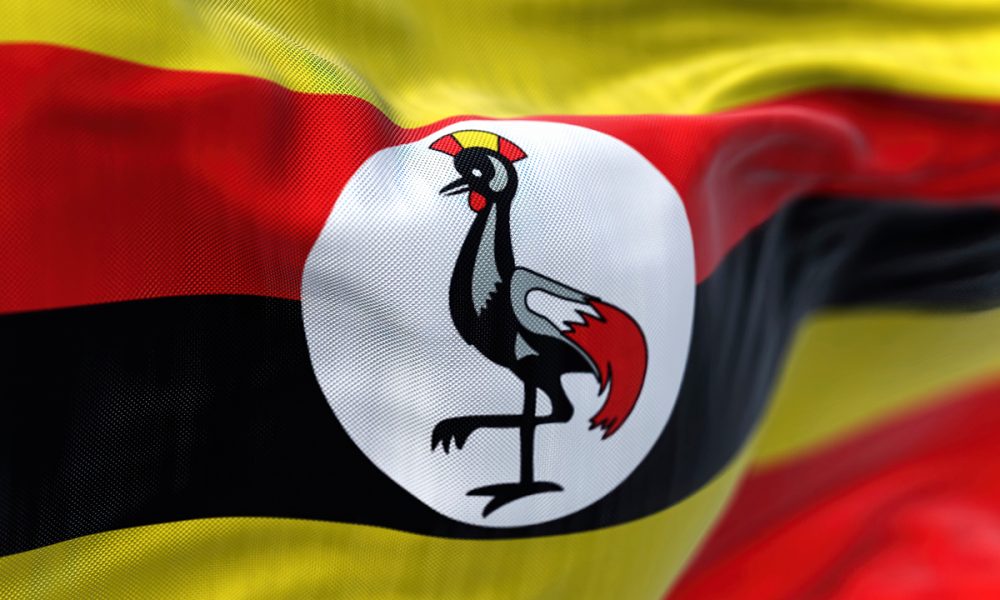NAIROBI, Kenya — Kenyan MPs are set to consider several anti-homosexuality proposals when Parliament reconvenes on Tuesday after a two-month break.
A group of more than 70 Kenyans from anti-LGBTQ+ lobby groups and religious organizations under the Kenya Christians Professional Forum and the Muslim Council of Imams and Preachers of Kenya petitioned Parliament on Feb. 1 to probe what they describe as the proliferation of homosexuality in the country.
The groups in their petition claim there have been “persistent, well-choreographed and well-funded” attempts by LGBTQ+ rights activists over the last decade to have anti-homosexuality laws declared unconstitutional.
“They have filed numerous court cases and petitions in our courts,” reads the petition submitted to the National Assembly that Speaker Moses Wetang’ula heads. “This has not only been witnessed in Kenya but also many African countries including Uganda, Botswana, Zimbabwe, Namibia and many others.”
The petitioners consider discrimination based on “sexual orientation and gender identity” used to push for the rights and freedoms of the LGBTQ+ community globally as “alien” terminologies not just to Africans but to “anyone with a moral fiber in their being.”
They accuse the National Council on Administration of Justice, a judicial body of state and non-state members, of plotting to “revise our moral code” through amendments to the Penal Code that criminalize consensual same-sex relations.
The petitioners also raise a concern over last year’s controversial Supreme Court ruling that allowed the National Gay and Lesbian Human Rights Commission to register as a non-governmental organization, which they warn will have a serious impact on the family in Kenya if left unchallenged because it allows the legalization of LGBTQ+ people.
“There have been concerted efforts from foreign non-state actors through financial lobbying to effect changes to our penal law to decriminalize such acts long criminalized such as homosexuality,” reads the petition. “This is the beginning of a slippery slope from which the country may not recover if left unattended.”
The petitioners further allege the infiltration of LGBTQ+-specific content in children’s school books and want Parliament to urgently investigate unsanctioned publishers and book distributors and hold responsible individuals accountable.
MPs are expected to approve a presidential education reform working group report presented to President William Ruto last August. Its recommendations include hiring pastors and imams in public elementary and high schools to fight homosexuality and other so-called immoral practices.
The petitioners want MPs to also inquire into what they describe as public recruitment of students into the LGBTQ+ community in universities and colleges through meetings on sexual freedoms and minority rights.
“These are inoculation and breeding grounds for the LGBTQ agenda,” reads the petition. “Unless Parliament intervenes and has these activities nipped in the bud, the moral decay we have seen over the last couple of years will continue to dizzying levels.”
Government officials the petitioners want to grill over LGBTQ+ activities and foreign funding of them in the country include Education Minister Ezekiel Machogu, Health Minister Susan Nakhumicha, Foreign Affairs Minister Musalia Mudavadi, Labor and Social Protection Minister Florence Bore and Police Inspector General Japhet Koome.
Another proposed anti-homosexuality law expected to be introduced in the National Assembly during the session is the long-awaited Family Protection Bill, sponsored by opposition MP Peter Kaluma, which contains punitive provisions that include a 50-year prison sentence for gays and lesbians convicted of non-consensual sex.
Kaluma’s bill, which the petitioners on the proliferation of LGBTQ+ practices in the country want its legislation fast-tracked, also proposes a ban on gay Pride parades, assemblies, street marchers, cross-dressing in public and all LGBTQ+-related activities. The bill has been pending before Parliament’s Social Protection Committee since last June.
Kaluma complained about the committee’s delay to Wentang’ula in August.
MPs are also expected to consider a proposed law on surrogacy, the Assisted Reproductive Technology Bill 2022, which seeks to help individuals with infertility problems to use surrogate mothers and in vitro fertilization to have children.
The bill, which is sponsored by another opposition MP, Millie Odhiambo, however, would prohibit gays and lesbians from having children via surrogate.
The National Assembly first approved it in November 2021, but its finalization stalled in the Senate when the 12th Parliament’s term ended in August 2022 before the general election. This delay rendered the bill “dead” under National Assembly rules because it can only proceed after its reintroduction in the current Parliament.
Odhiambo, who retained her parliamentary seat, reintroduced the bill in the National Assembly last May. The Health Committee will also accept additional proposals.
The committee who Dr. Robert Pukose chairs last September tabled the report with numerous amendments to the bill for adoption. Some of the proposed amendments included the deletion of the term “couple or parties to a marriage” defined as a man and a woman who are in an association that may be recognized as a marriage under any law in Kenya and replaced with the term “intending parents” for individuals seeking to have children using surrogacy and IVF.
The committee argues the term “couple or parties to a marriage” is discriminatory and that marriage should not be a requirement for individuals to access assisted reproductive technology services, although same-sex marriages are outlawed in Kenya.
“The bill aids couples or individuals with challenges of conceiving naturally and in this way, it addresses the reproductive health needs of Kenyans,” the committee’s report reads, a position which locks out gays and lesbians from parenting through surrogacy.
The bill would also criminalize the commercialization of surrogacy or related activities, such as procuring a surrogate mother by any person, an organization and any medical facility with hefty fines and jail terms.
During the session, MPs are also expected to approve Kenya’s revised National Policy and Action Plan on Human Rights that Attorney General Justin Muturi’s office is drafting to replace the 2014 one whose 5-year implementation period has lapsed.
The new policy, which should be in place by this year, according to the Kenya National Commission on Human Rights, involved gathering views on human rights from the public, state and non-state actors including LGBTQ+ lobby groups in nationwide dialogues between August and October last year.
The regional dialogues culminated in a national conference in Nairobi late last year on developing the policy.
Li Fung, senior human rights advisor to the U.N. Resident Coordinator in Kenya, attended the gathering during which Kaluma, while representing Wetang’ula, expressed Parliament’s concerns over “constant erosion of hard-fought rights” in the country and Africa with LGBTQ+ rights.
“Until LGBTQ rights are universally agreed to by the U.N. General Assembly, as long as we (MPs) sit in the Parliament, we will not accept them as human rights in Kenya and they will not find space in our body of laws,” Kaluma stated.
The lawmaker’s warning followed criticism of his anti-homosexuality bill by Irungu Houghton, executive director of Amnesty International Kenya and chair of non-state actors on National Human Rights Dialogues, who said it promotes hate against LGBTQ+ refugees and the queer community at large.
“We do not need any form of identity-based discrimination and more hatred in this republic,” Houghton said. He reiterated the “greatest threat” to Kenya and the constitution is the belief that “some human beings” do not deserve equality, dignity and protection under the law.





